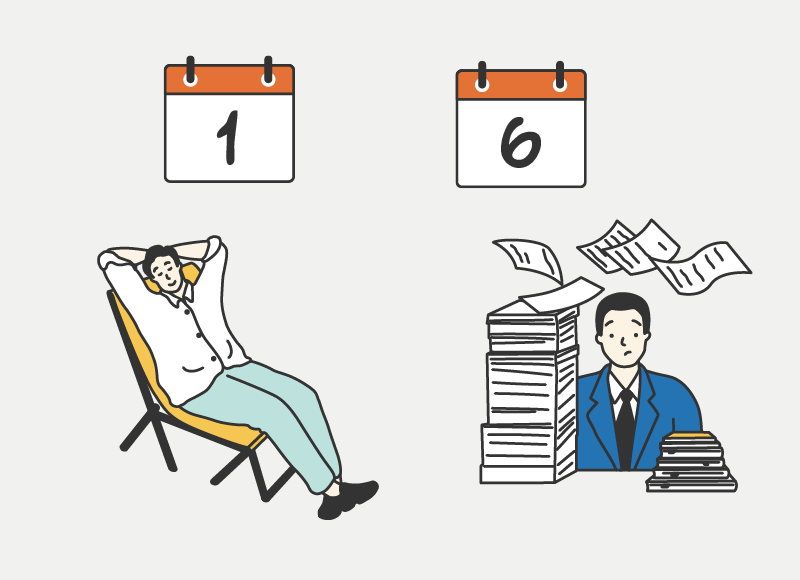In China, young people have to deal with a large amount of work on a daily basis, and many of them have more or less got used to working overtime three or four times a week. Therefore, national holidays are what all of them look forward to in that they will finally have the opportunity to put up their feet and spend some time on what they really want to do. However, expats who work in China have noticed that most Chinese people need to work for an extra day during the week before or after a national holiday, and they often wonder how it works and what the reason is for that. If you also feel puzzled about this question, you will find out the answer in this article.
1. What is 调休政策 (tiáoxiū zhèngcè)?
The reason why Chinese people sometimes need to work for six or seven days in a row before or after a national holiday is related to the 调休政策 (tiáoxiū zhèngcè), which can be translated as “exchanging holiday policy”. The word 调休 (tiáoxiū) literally means “adjusted working day”, which implies that one needs to work for another day or two in order to “compensate” for resting on weekdays. The Labor Day Holiday is around the corner, and let’s take that as an example. The Labor Day (May 1st) falls on a Monday this year, and all the Chinese employees will be able to enjoy a five-day holiday starting on Saturday, April 29th, and ending on Wednesday, May 3rd. Nevertheless, they will need to work on Sunday, April 23rd, and on Saturday, May 6th due to the fact that they will not be working from Monday, May 1st to Wednesday, May 3rd.
2. What do Chinese people think about the exchanging holiday policy?
Some Chinese people hold a negative attitude to the exchanging holiday policy. On one hand, the exchanging holiday policy would allow people to enjoy a relatively long holiday, which means they could take this opportunity to spend more time with their families or do a bit of traveling. On the other hand, it has a negative impact on people’s work efficiency as well as their psychological states due to an excessive amount of workload before or after a certain national holiday.
3. What changes do Chinese people expect?
Some people suggest that the government should abolish the exchanging holiday policy, however, it might entail quite a few negative consequences, including bringing harm to the tourist market. Others reckon that it’s sensible for people to take an extra two days off during the Spring Festival Holiday as many of them only get together with their families once a year. Although the exchanging holiday policy might remain unchanged in the next few years, it explicitly reflects the fact that the Chinese government encourages people to treat their work as their first priority. In fact, people from certain Asian countries including China and Japan have the reputation for being diligent.









0 Comments